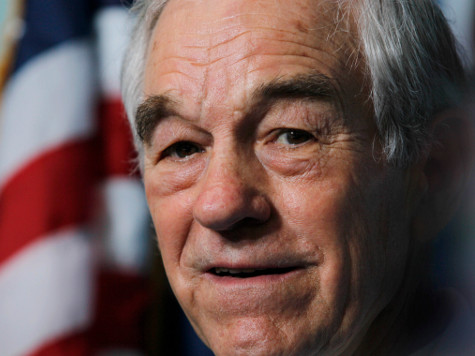
Rep. Ron Paul (R-TX), the libertarian crusader against the Federal Reserve who will retire from Congress at the end of this term, got the House to pass his “Audit the Fed” bill on Wednesday.
The Federal Reserve Transparency Act passed the House in a bipartisan 327-98 vote. The bill, according to The Hill, would allow for a full audit of the Fed’s monetary policy decisions.
Democrats argued that auditing the Fed would inject politics into the Fed’s decision-making process and be counterproductive. But this assumes that the Fed is somehow not influenced by politics already, which is not the case.
Republicans, according to The Hill, have said that in light of the unprecedented actions the Fed has undertaken in recent years and because Congress has essentially transferred some of its power to the Fed, more transparency and accountability are needed.
And since it is highly unlikely Congress will abolish the Fed, Paul said he hoped making the Fed’s decision-making process more transparent will enable Americans to understand how it operates.
“To audit, we should know what kind of transactions there are,” Paul said on the House floor. “We should know about the deals that they made when they were fixing the price of Libor. These are the kinds of things that have gone on for years that we have no access to.”
Paul’s bill, though, is unlikely to go anywhere in the Senate.
Senate Majority Leader Harry Reid (D-NV) does not intend to bring up the bill, according to The Hill, and a companion measure introduced by his son, Sen. Rand Paul (R-KY), who said his father has always been at “the vanguard” of the movement to audit the Fed, has only 22 Republican co-sponsors.
Regardless, the passage of the “Audit the Fed” bill in the House nicely caps the career of a Congressman who often proclaimed during the Republican primaries that the country, even though it has taken decades longer than he had wished, has moved toward his views on monetary policy.


COMMENTS
Please let us know if you're having issues with commenting.